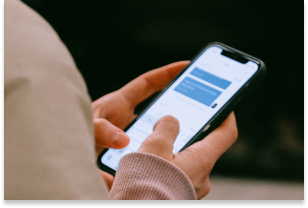Many people opt for encrypted messaging services because they like the additional layers of privacy they offer. They allow users to message their closest friends, family, and business partners without worrying about a stranger digitally eavesdropping on their conversation. The same people who message over encrypted services and apps are likely also diligent with securing their internet connections and using a VPN.
Despite all those safeguards, everyday people are left in the lurch when the companies with which they entrust their information are victims of cyberattacks. That was the case for users of the encrypted messaging app, Signal. Due to a phishing attack and subsequent leak of customer phone numbers, people are looking to identify potential consequences, protect themselves from SIM swapping, monitor their identity, and take measures to make sure their information is safe in the future.
What Happened?
A recent cyberattack targeted Signal, an end-to-end encrypted messaging service.1 The attackers exposed about 1,900 phone numbers belonging to Signal users. While other personally identifiable information (PII), message history, and contact lists were spared, valid phone numbers in the hands of a cybercriminal can be enough to wreak havoc on affected users.
It is likely that another recent and successful phishing scheme at Twilio was the entry point for the Signal hackers. (Signal partners with Twilio to send SMS verification codes to people registering for the Signal app.) At Twilio, phishers tricked employees into divulging their credentials.
To rectify the situation and protect users, Signal is contacting affected users and asking them to re-register their devices. Also, the company is urging all users to enable registration lock, which is an additional security measure that requires a unique PIN to register a phone with Signal.
Lessons Learned
There are many lessons not only companies but everyday people can learn from the Signal and Twilio hacks. Here are some ways you can take action at the first signs of a compromised phone number and to help prevent cyber-events like this from happening to you.
Know the signs of SIM swapping
SIM swapping occurs when a cybercriminal gets ahold of your cellphone number and a few other pieces of your PII and registers your phone number to a device and a new SIM card that isn’t yours. If they successfully reregister your phone number, they can then access your data, change account passwords, and lock you out of your most important accounts.
Luckily, since most of us use our phones every day, SIM swapping is usually detected quickly. If your phone isn’t connecting to the network and you’re not receiving calls and texts, it could be a sign that your wireless provider may have reassigned your number to an impersonator. In this case, contact your wireless provider immediately.
To make SIM swapping nearly impossible, always turn on multifactor authentication. Also known as MFA, multifactor authentication is a method many online accounts use to ensure that only the authorized user can gain entry. This could entail sending a one-time code by email or text, prompting security questions, or scanning for fingerprint or facial recognition in addition to asking for the account password. MFA is an additional layer of security that’s quick to implement. The extra few seconds it takes to type in a code or stand still for a facial scan is well worth the frustration is causes cybercriminals.
Be selective with whom you share your PII
These days, everyone has dozens of online accounts for everything from banking and shopping to streaming services and gaming. Since you can’t predict which company is going to be breached next, limit the number of possible doors a cybercriminal could break through to access your PII. In the Signal hack, it was their third-party vendor that was likely the cause of the leaked phone numbers. This unpredictability means it’s best to limit sharing your PII with as few accounts as possible. A great practice is to regularly organize your online accounts and deactivate the ones you no longer use.
Never share your passwords
A phishing attack seems to have been the first domino to fall in the Twilio and Signal incident. It could’ve been prevented if everyone followed this absolute rule: Never share your password! Your employer nor your bank nor the IRS, for example, will ever ask you for your password to an online account. If you receive correspondence asking you to share your password, no matter how official it looks, do not comply.
Phishers often lace their electronic correspondences with an urgent or authoritarian tone, threatening severe consequences if they don’t receive a response within a short timeframe. This is a ploy to get people to act too quickly without thinking through the request. If you receive a message that outlines dire consequences for seemingly small infractions, step away from the message for at least 15 minutes and think it through. Stay calm and follow up through official channels, such as a listed phone number on the organization’s website or a customer service chat room, to iron out the alleged situation instead.
Stay Protected
Diligent cybersecurity habits go a long way toward keeping you and your family’s PII out of the hands of malicious characters. However, in the case you trust a company with your information but it’s leaked in a breach, McAfee Total Protection can give you peace of mind. McAfee Total Protection offers premium security in various areas including antivirus, identity monitoring, secure VPN, Protection Score, and Personal Data Cleanup. Its advanced monitoring abilities are faster and offer broader detection for your identity. Plus, McAfee Total Protection can cover you up to $1 million in identity theft restoration.
Keep your eyes peeled for cybersecurity news and breaches that may have affected your PII. From there, take action and leverage McAfee services to help you fill in the gaps.
1The Hacker News, “Nearly 1,900 Signal Messenger Accounts Potentially Compromised in Twilio Hack”

